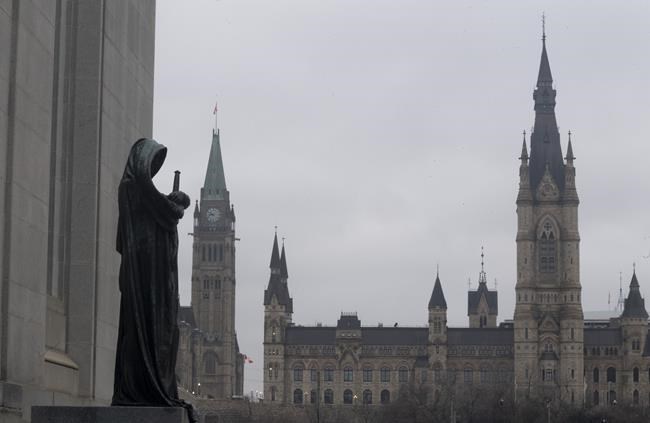OTTAWA — A defendant cannot use court delays in their first trial as justification for a stay of proceedings if they are ordered to stand trial a second time, the Supreme Court of Canada ruled Friday.
Canada's highest court said that when an accused faces a new trial on the same charge, the "constitutional clock" reverts to zero in all but exceptional cases.
Friday's ruling involved a Quebec man who was acquitted in 2017 of sexually assaulting his daughter but was ordered to stand trial again because of errors made by the trial judge.
The court had to consider the application of its 2016 Jordan ruling, which said defendants have the right to be tried within 18 months of the time of charging for cases before provincial courts and within 30 months for superior courts.
The man's first trial took more than 72 months to complete, of which 62 months were attributed to the Crown, but at the time he did not seek a stay for the delay. The acquittal was quashed in June 2018 by the Quebec Court of Appeal and a new trial was ordered.
A few months before that second trial in 2019, he argued successfully that he should receive a stay of proceedings because the previous trial took too long to get to court.
In an 8-1 ruling, the Supreme Court said that stopping a second trial based on delays in the first would undermine the sound administration of justice.
"When a new trial is ordered, the constitutional clock for calculating delay is reset to zero," Chief Justice Richard Wagner wrote on behalf of the majority.
Wagner said that in certain "exceptional circumstances," delays in a first trial could be invoked at a later date, but that did not apply here.
"In this case, the respondent did not act in a timely manner. Neither before nor during his first trial did he raise an infringement of his right to be tried within a reasonable time," Wagner wrote.
"Nor did he make an argument to this effect in the Court of Appeal after the Crown decided to appeal the verdict."
Quebec's Court of Appeal had upheld the stay granted by the lower court, which came even though the new trial was due to be completed by the end of May 2019, about 11 months after the new trial had been ordered.
Dissenting Justice Suzanne Côté wrote that the accused cannot be faulted for not having invoked the Jordan decision during his first trial since he hoped to be acquitted.
The court says the man, whose identity is protected under a publication ban to avoid identifying the alleged victim, must stand trial again in Quebec court on seven sex-related charges.
This report by The Canadian Press was first published May 6, 2022.
— With files from Pierre Saint-Arnaud
Émilie Bergeron, The Canadian Press



